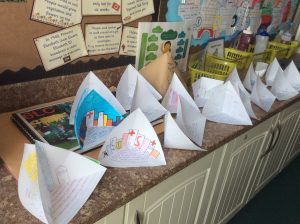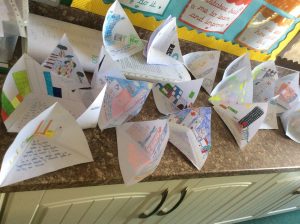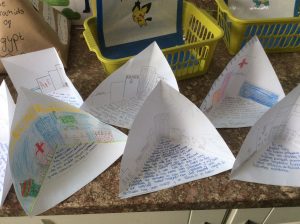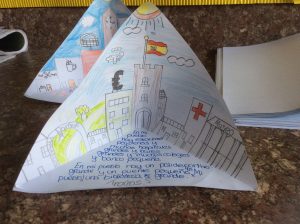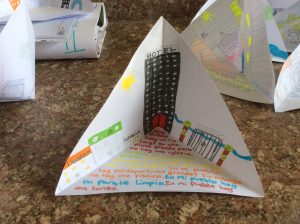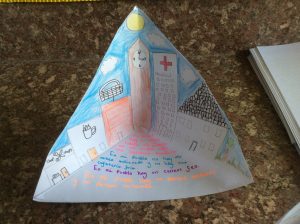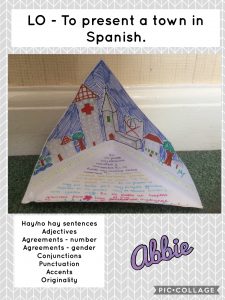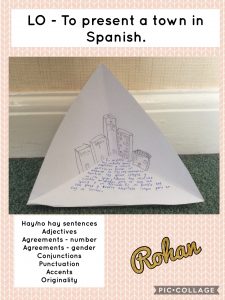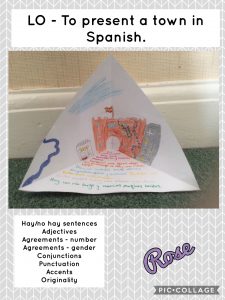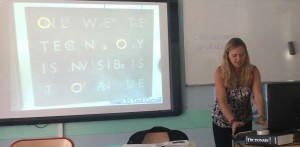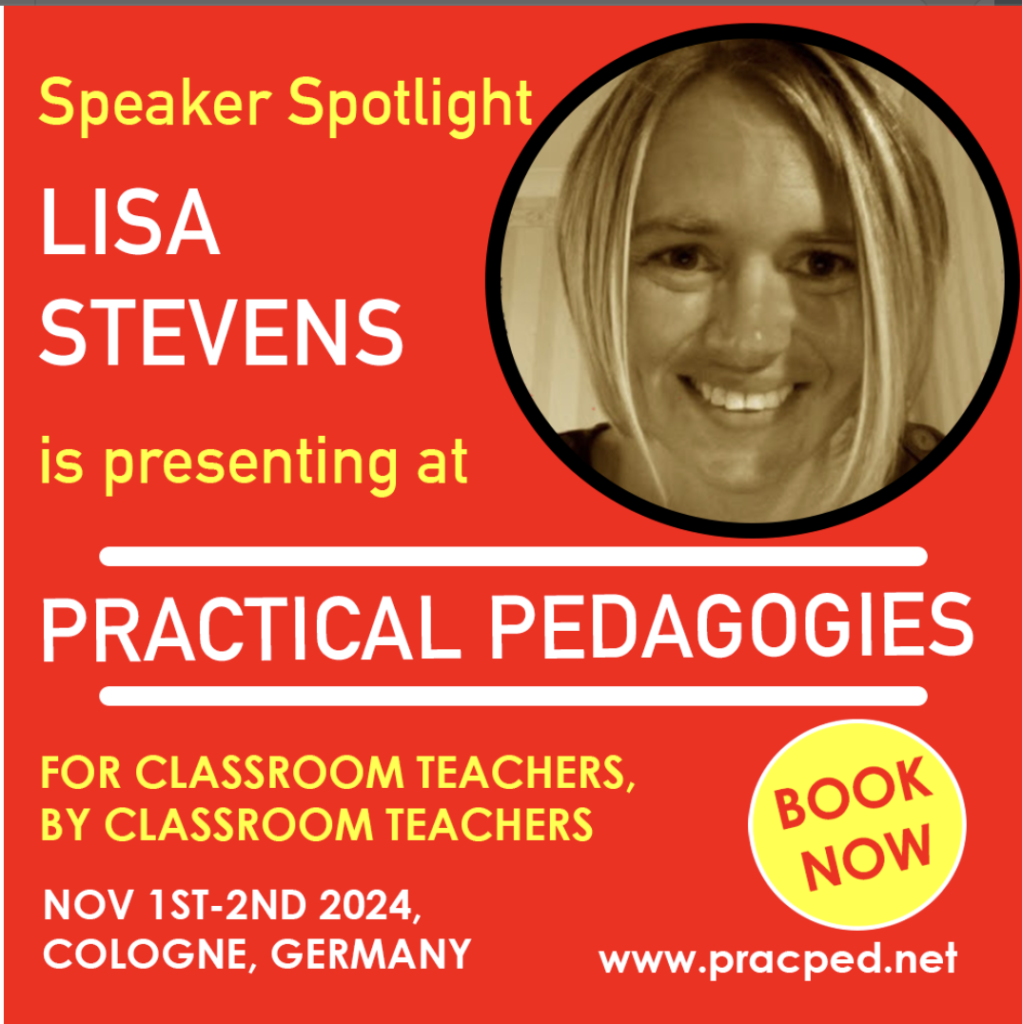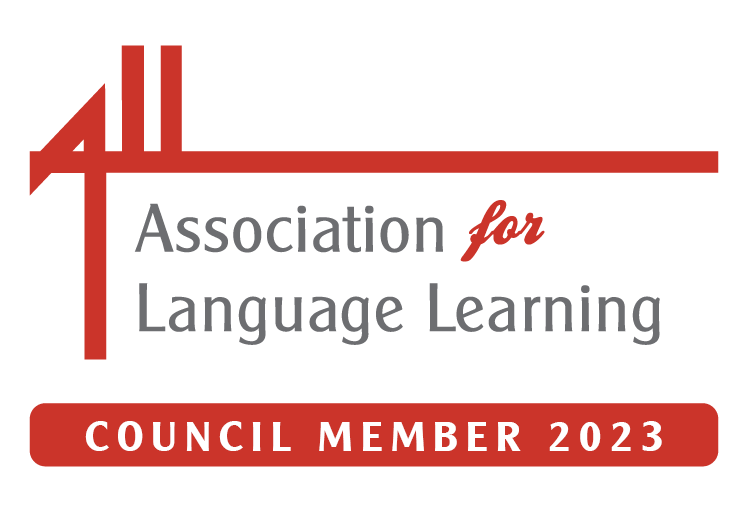
After my post earlier in the week about assessment I was interested to attend the session on Asset Languages at the Birmingham Primary Languages Conference. I knew a little of Asset from previous presentations but I was interested to hear if there had been any changes since I had last been updated.
John McNutt began his presentation with the statement –
‘Asset Languages is …a new way of assessing languages against the CAN DO statements of the DSCF’s Languages Ladder. It uses discrete assessment of the four skills of speaking listening reading and writing, allowing assessment to be done in as many or as few skills as wanted. It marks a move away from a content to skills based approach – not what you know but what can you do and work out with what you know; not just learning a language but learning how to learn languages.’
He gave us examples of how the first level descriptors look for Speaking and showed us by teaching us some Chinese that we all could attain this level quite easily.
- I can repeat a short phrase.
- I can ask a few questions.
- I can answer a few questions.
He pointed out that it’s easier to see your progress and your success if it’s in small steps like this.
Asset can be carried out through teacher assessment, external assessment or a mixture of both.
If you do teacher assessment, you can do it on your own at any time – can be done without telling pupils and you can issue your own certificates. John suggested that if the children don’t know they are being assessed, what’s the problem? Fair point I guess. He also highlighted that it is based on what pupils Can Do not Can’t Do.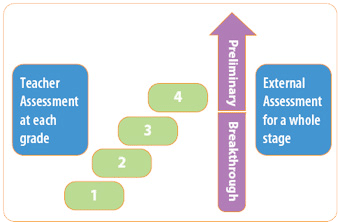
I liked John’s honesty on the subject of external assessment – If you do external assessment, there is stress! So why do it? He did suggest that it could be done at the end of Yr 6 for transition documents? this caused a sharp intake of breath from a number of people as they thought of SATs and already stressed out 10 and 11 year olds being faced with more exams.
The assessments are available in a range of many languages – and it is possible that a generic English pack will be produced so that any language can be assessed – good idea! The teacher assessments can be adapted as long as they fit the can do statements although external assessments are obviously set externally.
John wanted to demonstrate that assessment can be fun and asked for a volunteer. Having been met with silence, I took pity on him and volunteered, little knowing that i had to prepare the ‘class’ for an Asset Languaeg assessment in 5 minutes! I had to teach the ‘class’ a song in another language – guess what I chose? La Vaca Lola! Soon the whole class were waving their tails and mooing in Spanish – great fun!
Advantages of using Asset:
- A way of providing baseline data (in the future!)
- No need for QTS status.
- Kudos of having a certificate to recognise their achievements in languages.
So what do you have to do and how much does it cost?
Primary Starter pack – Breakthrough £75 +VAT (covers all languages)
Certificate packs – 1st pack of 125 is free, after that, costs can be as low as 26.7p +VAT
For external assessments – £1 per skill per pupil.
I asked the question – Do you have to be accredited teacher?
If you want to issue certificates, you complete the self access DVD and it covers you for all languages. As a training exercise rather than pass/fail – and you can be an accredited teacher for any number of schools. This is a change from the previous system where you had to complete the course for each language and each level that you wished to test!
Registration is free – you pay as you go!
Centre coordinator training is free and organised regionally – one day to become an administrative expert on Asset – not compulsory but recommended.
Asset seems to have adapted to become much less of an administrative burden than it used to be. I like the idea of not having to externally assess to use the system, and also the ability to reward certificates as and when you see fit (obviously assuming pupils have met the standards!) Perhaps it’s something I should investigate further – although I’m still a little reluctant!
